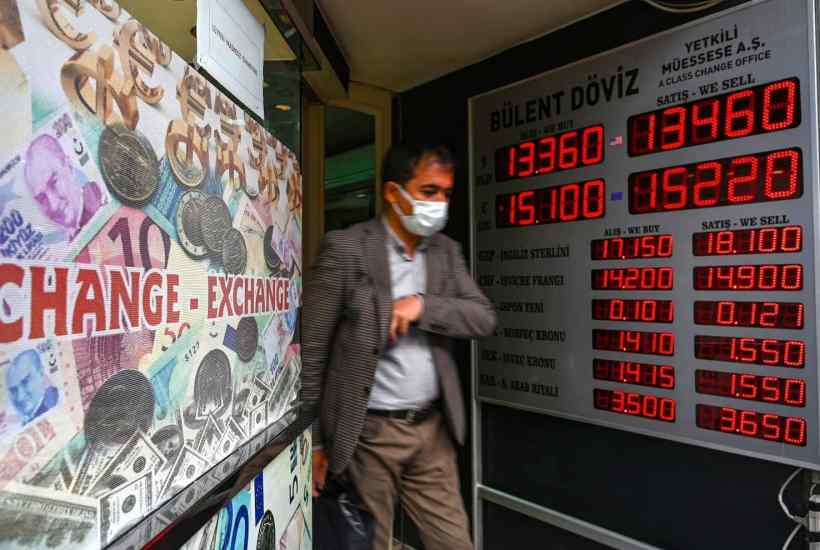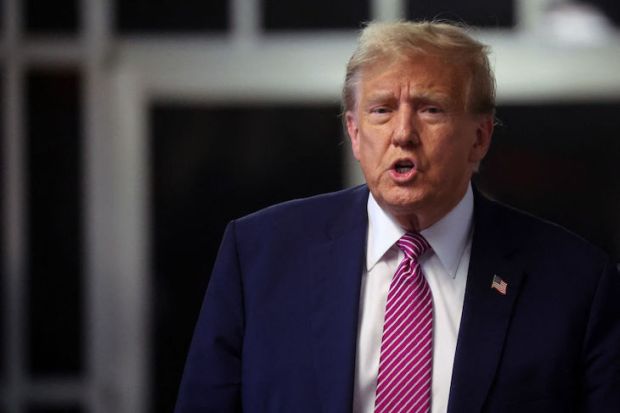Istanbul, Turkey
On Saturday mornings, Istanbul’s markets and greengrocers are packed with housewives in search of a bargain. Anxious women compare cabbages while chefs haggle over bunches of parsley, passing across thick wads of ten Lira notes – equivalent to about £5 a decade ago, now worth just 50 pence. The rising cost of food has become a national obsession in Turkey. Menemen, a staple breakfast dish of scrambled eggs with tomato, onion and fried green peppers, has seen the cost of its basic ingredients shoot up by 132 per cent in a year.
Some shops in the big cities have invested in digital price tags – those little grey electronic screens you see in continental supermarkets that can be updated with the click of a mouse. But out in the countryside, most shop owners tot up the tab on the spot, increasing prices on an almost daily basis.
At a branch of one budget supermarket, a pack of beef sausages that were around 20 lira (around £1 at the time of writing) just a few months ago now cost 46.50, while diners are shelling out twice as much for a kebab. Deniz, a café owner in Istanbul’s Osmanbey district, said: ‘A few years ago I bought plastic menus so I can wipe off the prices and change them every couple of days. I’m feeling good about that decision now.’
Inflation has hit crisis levels. While every country is suffering from inflation, Turkey is a special case. April saw inflation rates hit a 20-year high of 70 per cent, at least according to the government. But the independent Inflation Research Group estimates it is more than twice as much, at a colossal 157 per cent.
President Recep Tayyip Erdoğan has sacked three central bank governors in two years, fired the head of the state statistical agency and demoted its chief inflation analyst. Classical economics dictates that to counter rising prices, banks should raise their interest rates. The idea is that saving becomes more attractive than spending, therefore reducing the amount of money in circulation.
But Erdoğan doesn’t believe in traditional economics. He prefers to let Islamic scripture guide his monetary policy, arguing interest is a form of usury. Normally, Erdoğan’s traditionalist voters have been happy to see him guide the country in line with Islamic principles. Now, though, his support seems to be waning. The Turkish President faces re-election next year, with polls suggesting his predominantly rural, Muslim voting base is losing faith in his ability to govern.
Few workers have seen their pay rise by anywhere near enough to match the wild surge in price. ‘It’s not enough to live on,’ Tufan, a 29-year old consultant, says. ‘We are getting poorer all the time. All we can do is wait for the elections. But even then, would changing government make a difference? Probably not.’ Like most other young workers, he had been converting a chunk of his paycheque to dollars or euros in the hope of protecting himself from inflation. But, with price rises eating away any hopes of saving, he doesn’t bother anymore and spends what he has on his bills.
‘Other people bought cryptocurrency, but now they’ve lost money as well,’ Tufan adds. While paying for goods and services with crypto is banned, many major cities have at least one Bitcoin ATM, allowing people to exchange their tokens for lira whenever they need cash. Entrepreneurs have also set up cryptocurrency stores, run like family businesses, to offer less tech-savvy Turks an easy way into the market while skimming off a healthy commission.
Many regular cash machines haven’t been able to keep up – their preset withdrawal options top out at the equivalent of only £12. As a result, people are sometimes forced to wait in line while those who need cash for larger transactions make withdrawal after withdrawal. Given the largest denomination of Turkish banknote is 200 lira – worth around a tenner, not enough for 4kg of peppers – it is not uncommon to see people pull out wallets bulging with frayed paper.
Getting around Istanbul has become harder as well. Taxi drivers mostly refuse to turn on their meters, given local authorities which set the rates have been slow to adjust the prices, leaving them out of pocket. Most cabbies are happy to accept dollars, pounds or euros, despite government rules. Drivers on ride-hailing apps like Uber often ask passengers to leave a tip to help make up the difference on petrol. Public transport, however, has become cheaper, and a ride on the sprawling metro now costs as little as 17 pence.
At the same time though, the growing hardship has sparked a wave of anti-migrant sentiment, mainly towards refugees fleeing conflicts like the Syrian civil war. Some migrant workers earn as little as £7.50 a day, but there have been reports of knifepoint robbings and accusations that they’re taking jobs away from local communities.
‘We’re determined to bring down inflation to the single digits as soon as possible,’ Erdoğan said earlier this year. But that’s going to be difficult if he continues to hold that interest is ‘the mother and father of all evil’. Late last year, he cut interest rates by five points to 14 per cent, with a promise to cut it still further. ‘As a Muslim, I will continue doing what our religion tells us. This is the command.’
Not everyone believes that he is doing enough. ‘We are going through such a crisis that all basic needs have become luxury,’ according to Veli Ağbaba, the deputy chairman of the Republican People’s party, the largest opposition group. ‘What can people do? Should they commit suicide?’
Got something to add? Join the discussion and comment below.
Get 10 issues for just $10
Subscribe to The Spectator Australia today for the next 10 magazine issues, plus full online access, for just $10.




















Comments
Don't miss out
Join the conversation with other Spectator Australia readers. Subscribe to leave a comment.
SUBSCRIBEAlready a subscriber? Log in